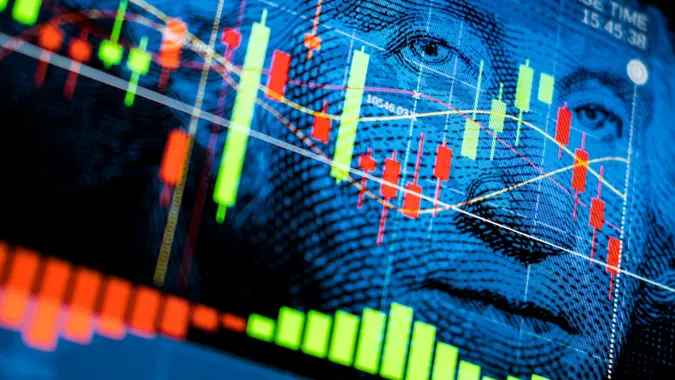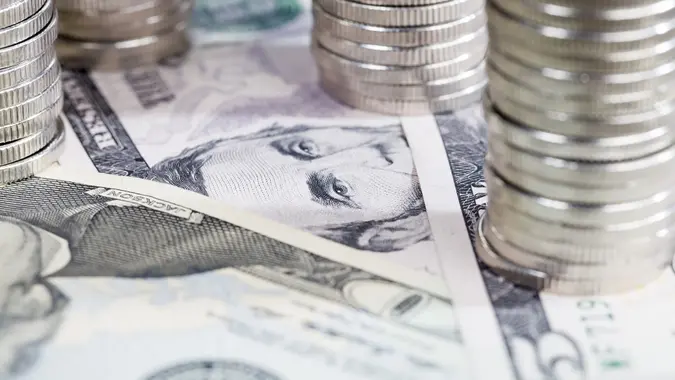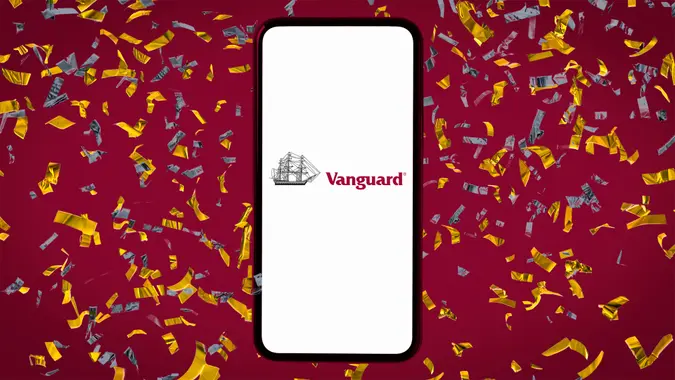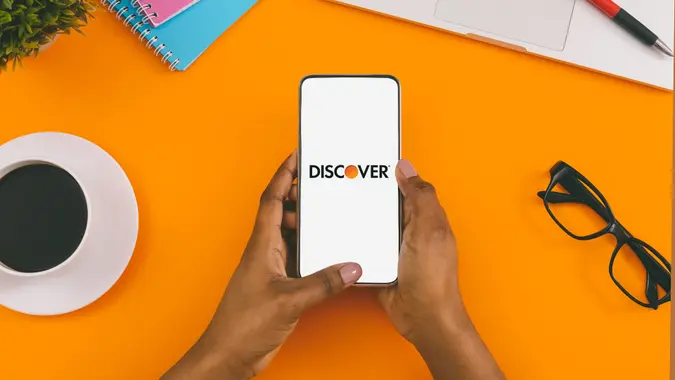Can Your Bank Revoke the High Interest You Earn on a CD? Read the Fine Print

Commitment to Our Readers
GOBankingRates' editorial team is committed to bringing you unbiased reviews and information. We use data-driven methodologies to evaluate financial products and services - our reviews and ratings are not influenced by advertisers. You can read more about our editorial guidelines and our products and services review methodology.

20 Years
Helping You Live Richer

Reviewed
by Experts

Trusted by
Millions of Readers
Inflation has been cooling, with the current inflation rate hovering around 2.4%. While this is welcome news for those looking to take out a mortgage or an auto loan, it isn’t such great news for savers because it means interest rates on high-yield savings accounts and certificates of deposit (CDs) are also coming down.
Like many, you might be rushing to open a CD now to lock in some of the higher rates still available. However, you’ll want to carefully consider your options and read the fine print before doing so. If your CD is callable, you could lose all your earned interest, not to mention the higher rate that you “locked” in. Let’s explore further.
The Federal Reserve Cut Interest Rates by a Significant 0.5%
On September 18, 2024, the Federal Reserve made the decision to cut the federal funds rate by 0.5%, the first rate cut since 2020. This brings the current federal funds rate down to 4.75%-5%.
The Fed decided to make a rate cut of this magnitude to reach its goal of an overall inflation rate of no more than 2%, and there may be more rate cuts before the end of the year. This will ultimately result in lower interest rates for mortgages, auto loans and credit card debt, as well as savings accounts and CDs.
You might be relieved if you’ve already locked in a higher interest rate on a CD, but are you sure that you’ll earn the interest once the CD matures? Let’s find out.
Big Banks Are ‘Calling Back’ High-Yield CDs
According to the Wall Street Journal, some of the highest-yielding CDs, which offer APYs of around 5%, have some caveats. In many cases, you’re agreeing that the bank is allowed to “call” the CD back before it matures. This means handing back the cash and accrued interest.
Most notably, banks like Chase and U.S. Bank are now calling back more high-yielding CDs before they mature.
“A lot of investors will look at just the yield,” explained Kathy Jones, chief fixed-income strategist at Charles Schwab Jones. “We get people all the time who are like, ‘Wait a minute, my CD was called. What happened?'”
If your CD is called back, you’ll be forced to reinvest your funds at a lower interest rate as rates continue to drop. Sometimes, a higher rate also means higher risk.
Therefore, it is very important to do more research and be sure to open a noncallable CD so that your interest rate is guaranteed for the whole CD term.
 Written by
Written by  Edited by
Edited by 

























